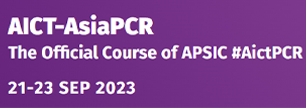


- NEWS
-
-
Scientific LibraryAcute Coronary Syndrom ASCVD Prevention Bifurcation Stenting Cardio-Oncology Congestive Heart Failure DAPT Duration Drug Coated Balloon Fractional Flow ReserveCases VideosE-LearningIndustry Insights
- LIVE REVIEW
-
 Article Link
Article Link

Reduced risk of gastrointestinal bleeding associated with proton pump inhibitor therapy in patients treated with dual antiplatelet therapy after myocardial infarction
TSG Sehested, N Carlson, PW Hansen et al.
KEYWORDS
gastrointestinal bleeding, proton pump inhibitors, DAPT, myocardial infarction
AIMS - Guidelines differ in their recommendations on therapy to prevent gastrointestinal bleeding for patients treated with dual antiplatelet treatment (DAPT). We sought to investigate the effectiveness of proton pump inhibitors (PPIs) to prevent upper gastrointestinal (UGI) bleeding in patients using DAPT following myocardial infarction (MI) in relation to current European Society of Cardiology guidelines recommendations.
METHODS AND RESULTS - We linked Danish nationwide registries to identify patients taking DAPT 7 days following hospital discharge for an acute MI, and excluded individuals on anticoagulation therapy. We used multiple Cox regression modelling, to compute average risk of UGI bleeding in relation to PPI use. The associated treatment efficacy was compared based on guideline risk assessment. We studied 46 301 patients on DAPT after MI. Only 35% of patients at higher risk of UGI bleeding received recommended treatment with a PPI based on the guideline criteria. The 1-year risk of UGI bleeding was 1.0% [95% confidence interval (CI) 0.9-1.1%] and 1.7% (CI 1.5-2.0%) for high-risk patients. Overall PPI compared with no therapy, was associated with a risk ratio for UGI bleeding of 0.62 (CI 0.48-0.77) corresponding to an absolute risk difference of 0.44% (CI 0.39-0.48%). Proton pump inhibitor therapy was associated with a similar absolute risk difference [0.47% (CI 0.43-0.51%)] for high-risk patients.
CONCLUSION - Proton pump inhibitor therapy is used less than suggested by guidelines in patients treated with DAPT following MI and was generally associated with reduced risk of UGI bleeding. Considering the overall low risk of bleeding, more focus should be on identifying patients benefiting the most from PPI therapy.
Published on behalf of the European Society of Cardiology. All rights reserved. © The Author(s) 2019. For permissions, please email: journals.permissions@oup.com.




















